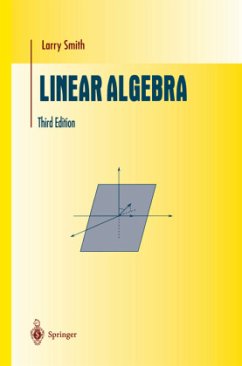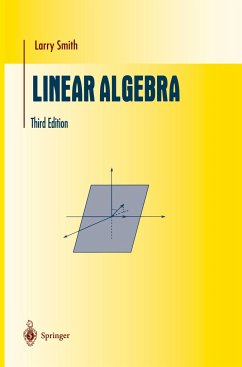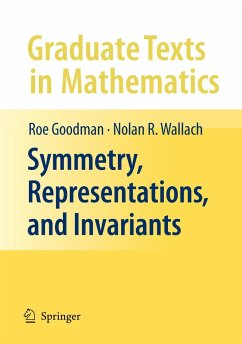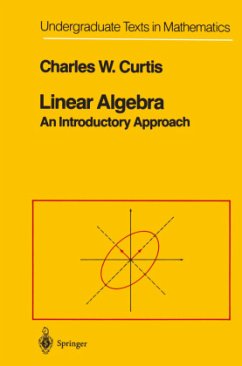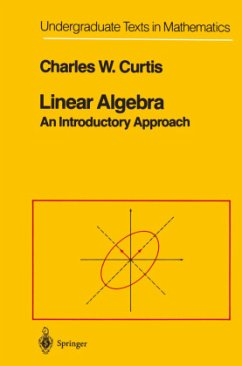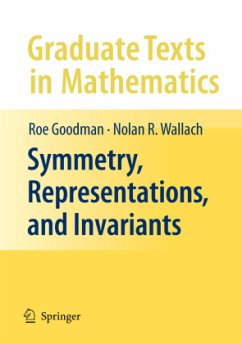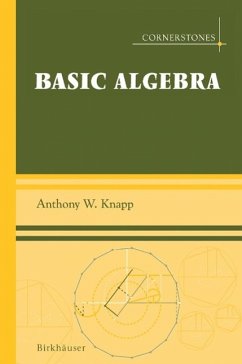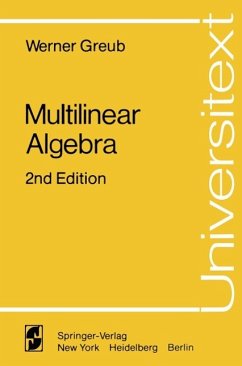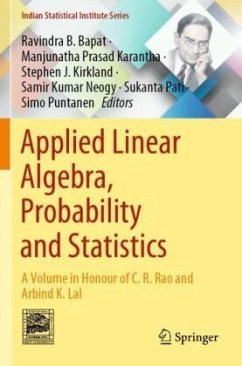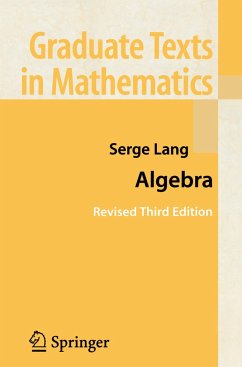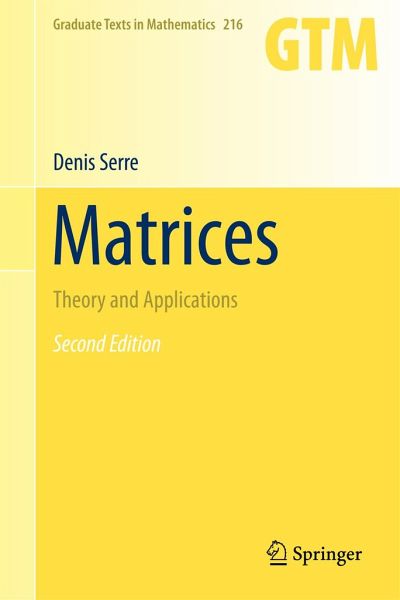
Matrices
Theory and Applications
Versandkostenfrei!
Versandfertig in 6-10 Tagen
46,99 €
inkl. MwSt.
Weitere Ausgaben:

PAYBACK Punkte
23 °P sammeln!
In this book, Denis Serre begins by providing a clean and concise introduction to the basic theory of matrices. He then goes on to give many interesting applications of matrices to different aspects of mathematics and also other areas of science and engineering. With forty percent new material, this second edition is significantly different from the first edition. Newly added topics include: - Dunford decomposition, - tensor and exterior calculus, polynomial identities, - regularity of eigenvalues for complex matrices, - functional calculus and the Dunford-Taylor formula, - numerical range, - ...
In this book, Denis Serre begins by providing a clean and concise introduction to the basic theory of matrices. He then goes on to give many interesting applications of matrices to different aspects of mathematics and also other areas of science and engineering. With forty percent new material, this second edition is significantly different from the first edition. Newly added topics include: - Dunford decomposition, - tensor and exterior calculus, polynomial identities, - regularity of eigenvalues for complex matrices, - functional calculus and the Dunford-Taylor formula, - numerical range, - Weyl's and von Neumann's inequalities, and - Jacobi method with random choice. The book mixes together algebra, analysis, complexity theory and numerical analysis. As such, this book will provide many scientists, not just mathematicians, with a useful and reliable reference. It is intended for advanced undergraduate and graduate students with either applied or theoretical goals. This book is based on a course given by the author at the École Normale Supérieure de Lyon.



